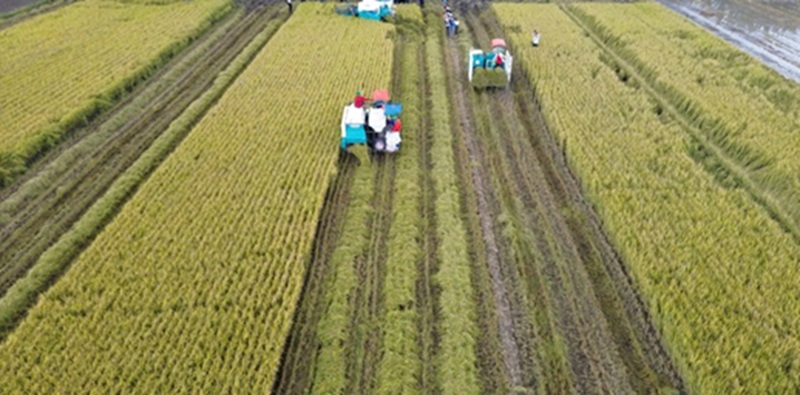Science and technology pave the way for the 1 million hectare 'green' rice project
The project “Sustainable development of 1 million hectares of high-quality rice cultivation, emission reduction associated with green growth in the Mekong Delta by 2030” marks an important step forward for the national rice industry.

Model of 1 million hectares of high-quality, low-emission rice of Tien Thuan Cooperative (Can Tho City) - Photo: VGP/LS
Can Tho has coordinated with IRRI to assess the level of technical application of farmers to develop appropriate support and reward policies, while continuing to expand the model, improve training and market connections, contributing to increasing income and reducing emissions for the Vietnamese agricultural sector. A highlight of this strategy is to build the brand “green, low-emission Vietnamese rice,” based on a model of high-quality rice production, emission reduction, value chain development and evidence-based technical and policy systems.
During the implementation process, IRRI has closely cooperated with the Ministry of Agriculture and Environment, VIETRISA and partners to develop advanced technical processes such as mechanized sowing, alternate wetting and drying, straw management, and application of emission reduction quantification (MRV) technology, thereby creating effective pilot models in many localities. The results show that new techniques help significantly reduce the amount of seeds, fertilizers, and materials, save water, increase productivity, and significantly reduce greenhouse gas emissions, contributing to the development of sustainable and environmentally friendly agriculture.
Businesses and farmers have recognized the benefits of these solutions. Tu Sang Company has applied mechanization to reduce the number of seeds, save fertilizer, and improve efficiency, while Tien Thuan Cooperative in Can Tho said that thanks to applying new techniques, they have reduced fertilizer by 20-30%, production costs, increased profits from 1.3 to 6.2 million VND/ha, and contributed to reducing CO₂. These results clearly demonstrate the effectiveness of technical solutions and sustainable agricultural methods in improving the position of Vietnam's rice industry in the integration period.